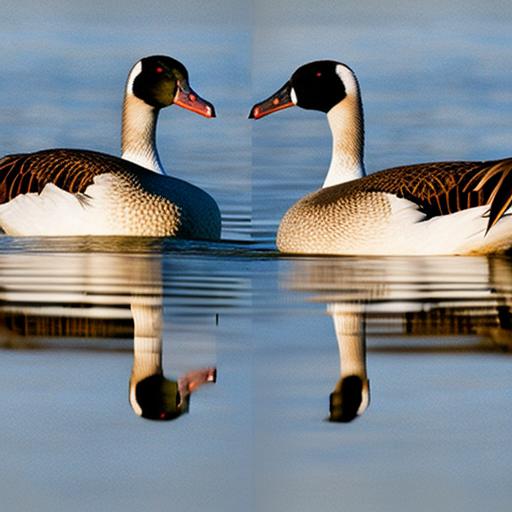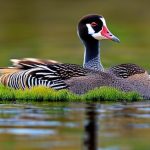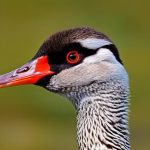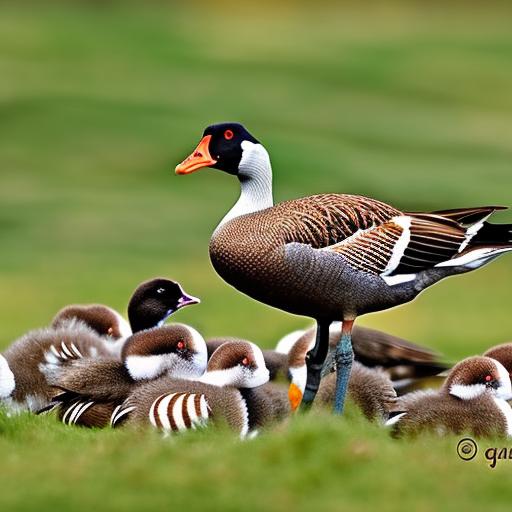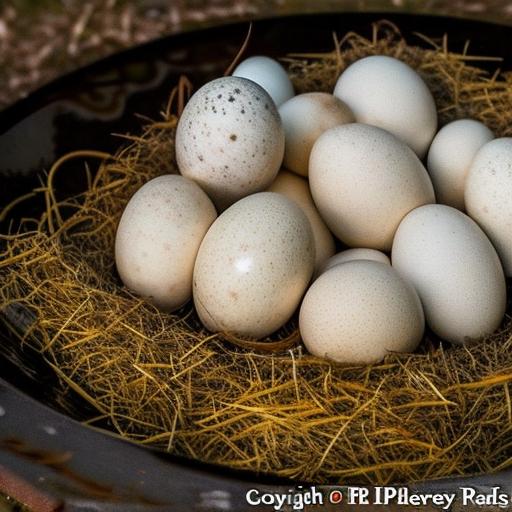Large geese breeds are a popular choice among farmers and hobbyists alike due to their impressive size and various practical uses. These breeds are known for their ability to lay a good number of eggs and produce high-quality meat, making them valuable assets in the agricultural industry. Additionally, their docile temperament and striking appearance make them a favorite among poultry enthusiasts.
Key Takeaways
- Large geese breeds are popular around the world for their meat, eggs, feathers, and as pets and show animals.
- Characteristics of large geese breeds include their size, weight, color, and temperament.
- Popular large geese breeds include Toulouse, Embden, Chinese, African, and American Buff.
- The history and origin of large geese breeds can be traced back to ancient times in Europe and Asia.
- Breeding and rearing large geese breeds require proper nutrition, housing, and health management.
Characteristics of Large Geese Breeds
Large geese breeds are easily distinguishable by their size and physical appearance. They are significantly larger than other goose breeds, with males weighing up to 30 pounds and females weighing around 20 pounds. Their bodies are robust and muscular, with long necks and broad chests. Large geese breeds also have distinctive plumage, often featuring a combination of white, gray, and brown feathers.
In terms of temperament and behavior, large geese breeds are known for being calm and friendly. They are generally docile and can be easily handled, making them suitable for both commercial farming and backyard raising. However, it is important to note that they can become protective of their territory and may exhibit aggression towards strangers or predators.
When it comes to egg-laying and meat production capabilities, large geese breeds excel in both areas. They are prolific layers, with females producing an average of 30-40 eggs per year. These eggs are larger than those of other goose breeds and have a rich flavor. In terms of meat production, large geese breeds yield a significant amount of high-quality meat that is prized for its tenderness and flavor.
Popular Large Geese Breeds Around the World
Large geese breeds are found in various countries around the world, each with its own unique characteristics. In the United States, the Embden goose is one of the most popular large goose breeds. It is known for its pure white plumage and large size, making it a favorite among farmers and exhibitors. The Toulouse goose, also from the United States, is another popular breed known for its gray plumage and calm temperament.
In Europe, the Emden goose is highly regarded for its size and meat production capabilities. It is a large, white breed that originated in Germany and has since become popular in many European countries. The Chinese goose, as the name suggests, hails from China and is known for its striking appearance and excellent egg-laying abilities.
History and Origin of Large Geese Breeds
The history of large geese breeds can be traced back to ancient times when geese were domesticated for their meat, eggs, and feathers. The exact origin of these breeds is unclear, but they are believed to have originated from wild geese found in Europe and Asia. Over time, selective breeding was used to develop larger and more productive geese breeds.
Notable breeders have played a significant role in the development of large geese breeds. One such breeder is Sir Peter Scott, a British ornithologist who established the Wildfowl & Wetlands Trust in the 1940s. Scott was instrumental in preserving and breeding various waterfowl species, including large geese breeds. His work contributed to the conservation and improvement of these breeds.
Breeding and Rearing Large Geese Breeds
Breeding and rearing large geese breeds require careful planning and attention to detail. It is important to select breeding stock that meets the desired characteristics, such as size, plumage color, and temperament. Breeding pairs should be chosen based on their genetic potential to produce offspring with desirable traits.
When it comes to rearing large geese breeds, it is essential to provide them with a suitable environment that allows for ample space to roam and graze. They should have access to clean water for swimming and bathing, as well as shelter from extreme weather conditions. Proper nutrition is also crucial for their growth and development, with a balanced diet consisting of grains, greens, and protein-rich feeds.
Housing and Feeding Requirements for Large Geese Breeds
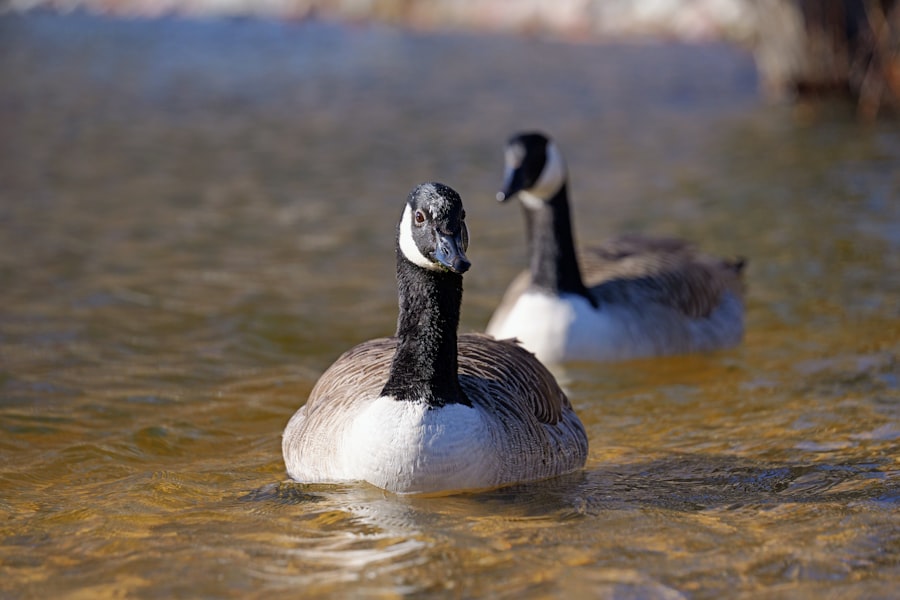
Large geese breeds require adequate housing to ensure their well-being and productivity. A spacious and secure enclosure is necessary to accommodate their size and allow for natural behaviors such as grazing and swimming. The enclosure should be protected from predators and have proper ventilation to prevent respiratory issues.
Feeding requirements for large geese breeds vary depending on their age and purpose. Growing goslings require a diet high in protein to support their rapid growth, while adult geese need a balanced diet that includes grains, greens, and supplements. Fresh water should be available at all times, as geese require it for digestion and maintaining good health.
Health and Welfare of Large Geese Breeds
Like any other livestock, large geese breeds are susceptible to various health issues that can affect their well-being and productivity. Common health problems include respiratory infections, parasites, and foot problems. Regular veterinary check-ups, proper nutrition, and good hygiene practices are essential for preventing these issues.
To ensure the welfare of large geese breeds, it is important to provide them with a stress-free environment that meets their physical and behavioral needs. This includes access to clean water for swimming and bathing, ample space to roam and graze, and protection from extreme weather conditions. Regular socialization and interaction with humans can also contribute to their overall well-being.
Utilization of Large Geese Breeds in Agriculture and Industry
Large geese breeds play a significant role in agriculture and industry due to their egg-laying and meat production capabilities. Their eggs are highly valued for their size and flavor, making them a popular choice among consumers. Additionally, their meat is sought after for its tenderness and taste, making it a profitable product for farmers and processors.
In the agricultural industry, large geese breeds are often raised in commercial operations for their meat and eggs. They are also used for weed control in vineyards and orchards, as their grazing habits help to keep vegetation under control. In the textile industry, their feathers are used for down products such as pillows and comforters.
Large Geese Breeds as Pets and Show Animals
Large geese breeds are not only valued for their practical uses but also make great pets and show animals. Their docile temperament and striking appearance make them popular choices among poultry enthusiasts looking for a unique addition to their backyard flock. They can be trained to be friendly and sociable, making them enjoyable companions.
When it comes to showing large geese breeds, their size and plumage make them stand out in exhibitions and competitions. They are often judged based on their conformation, color, and overall appearance. Show geese require regular grooming and training to ensure they are in top condition for the show ring.
Future Prospects for Large Geese Breeds
The future prospects for large geese breeds look promising, with potential for further development and improvement. Breeders continue to work on enhancing desirable traits such as size, egg-laying capacity, and meat quality. Genetic selection and advancements in breeding techniques can contribute to the continued improvement of these breeds.
Large geese breeds also play an important role in the future of agriculture and industry. As consumer demand for high-quality meat and eggs continues to grow, these breeds can provide a sustainable source of food production. Additionally, their versatility in weed control and down production makes them valuable assets in various sectors.
In conclusion, large geese breeds are highly valued for their impressive size, practical uses, and striking appearance. They are popular among farmers and hobbyists alike due to their egg-laying and meat production capabilities. With proper breeding, rearing, housing, and nutrition, these breeds can thrive and contribute to the agricultural industry. Whether as pets, show animals, or contributors to the economy, large geese breeds have a bright future ahead.
If you’re interested in large geese breeds, you might also want to check out this informative article on poultrywizard.com about what to feed ducks. Feeding ducks the right diet is crucial for their health and well-being, and this article provides valuable insights and tips on how to ensure your ducks are getting the nutrition they need. To learn more, click here: What Should You Feed Ducks?
FAQs
What are large geese breeds?
Large geese breeds are domesticated geese that are known for their size and weight. These breeds are typically raised for meat, eggs, and feathers.
What are some examples of large geese breeds?
Some examples of large geese breeds include Toulouse, Embden, African, and Chinese geese. These breeds can weigh anywhere from 10 to 20 pounds or more.
What is the average lifespan of large geese breeds?
The average lifespan of large geese breeds is around 10 to 15 years. However, with proper care and nutrition, some geese have been known to live up to 20 years.
What is the temperament of large geese breeds?
The temperament of large geese breeds can vary depending on the breed and individual bird. However, in general, geese are known for being social, curious, and protective of their flock.
What is the ideal environment for large geese breeds?
Large geese breeds thrive in environments with access to water, grassy areas for grazing, and shelter from extreme weather conditions. They also require a secure area to roost at night to protect them from predators.
What is the nutritional value of large geese breeds?
Large geese breeds are a good source of protein, iron, and other essential nutrients. However, the nutritional value can vary depending on the age and diet of the bird. Geese raised for meat are typically fed a high-protein diet to promote growth and weight gain.
Meet Walter, the feathered-friend fanatic of Florida! Nestled in the sunshine state, Walter struts through life with his feathered companions, clucking his way to happiness. With a coop that’s fancier than a five-star hotel, he’s the Don Juan of the chicken world. When he’s not teaching his hens to do the cha-cha, you’ll find him in a heated debate with his prized rooster, Sir Clucks-a-Lot. Walter’s poultry passion is no yolk; he’s the sunny-side-up guy you never knew you needed in your flock of friends!

